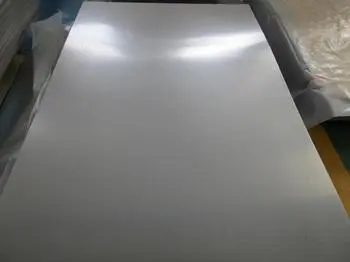Table of contents:
Overview of Global Standards for Titanium Materials
The Certification Process for Titanium Plate Manufacturers
Maintaining Quality Assurance in Production
Navigating Regulatory Requirements in Different Markets
Overview of Global Standards for Titanium Materials
For titanium plate suppliers, adhering to international standards is the foundation of credibility. Standards like ASTM B265, ASME SB265, and AMS4901, among others, set stringent guidelines on the chemical composition, mechanical properties, and manufacturing processes of titanium plates and sheets. These standards ensure that the material meets the requirements for specific applications, ranging from aerospace to marine and chemical processing. For example, ASTM B265 specifies the chemical and mechanical properties of titanium products used in industries where high-performance corrosion resistance is required. Full compliance enables manufacturers to cater to industries that demand materials capable of withstanding extreme conditions. By following these guidelines, titanium sheet suppliers can offer consistent, high-quality products that meet both safety and performance expectations.
The Certification Process for Titanium Plate Manufacturers
The certification process is a critical step for titanium plate manufacturers who aim to verify that their products adhere to international standards. To obtain certification, manufacturers undergo third-party audits and assessments that evaluate their production processes, quality management systems, and product characteristics. For instance, ISO9001 certification is often a prerequisite for credibility in the global market, demonstrating a commitment to robust quality management practices. Furthermore, organizations like the American Society for Testing and Materials (ASTM) or the Aerospace Material Specifications (AMS) verify that the titanium plates meet performance benchmarks. The certification process does not just validate compliance; it also opens doors to international markets where stringent regulatory requirements are often non-negotiable. Certification ensures that titanium plates for sale fulfill industry-specific requirements, reflecting a supplier's dedication to quality and reliability.
Maintaining Quality Assurance in Production
Quality assurance is at the heart of producing titanium plates that meet the required international standards. From raw material selection to the final product, every stage of production is scrutinized. Raw materials such as titanium sponge, crystal bars, or ingots are subjected to rigorous testing to ensure compliance with specific chemical and mechanical properties. Advanced testing methods, including ultrasonic tests and hydrostatic tests, are implemented during production to identify any defects or inconsistencies. Additionally, many manufacturers adopt cutting-edge technologies and independent research to enhance quality. For example, titanium sheets and plates offered by suppliers like NJYT Metal are customized, ensuring that every product meets unique specifications, whether it is for thickness, size, or material grade. This level of personalization and quality control allows manufacturers to cater to a wide range of applications, giving buyers the confidence that they are investing in high-performance materials.
Navigating Regulatory Requirements in Different Markets
Navigating regulatory requirements is a complex but vital aspect for titanium plate suppliers looking to expand their global footprint. Regulations vary significantly depending on the market and its industrial focus. For example, aerospace-grade titanium must comply with strict standards like AMS4911 and undergo additional testing to ensure optimal performance under high stress and volatile conditions. Similarly, those supplying to the maritime or chemical industries must ensure corrosion resistance and adherence to standards like ASME SB265. Suppliers must also consider government regulations, customs standards, and eco-compliance guidelines that differ across territories. Understanding and meeting these regulatory requirements help titanium sheet suppliers not only avoid legal complications but also build a reputation for reliability in diverse markets. By leveraging certifications and adhering to compliance, suppliers position themselves as trusted partners for businesses seeking high-quality materials.
In conclusion, the titanium sheet market demands a thorough understanding of material specifications, regulatory standards, and client needs. By prioritizing quality, investing in certifications, and staying informed about regional and global compliance requirements, suppliers can establish themselves as leaders in the industry. This commitment to excellence not only ensures customer satisfaction but also fosters long-term partnerships and a strong reputation in a competitive marketplace.

No comments:
Post a Comment